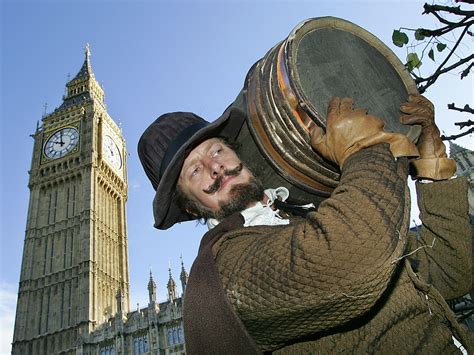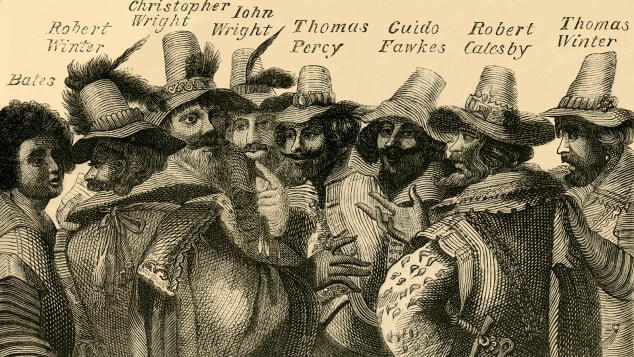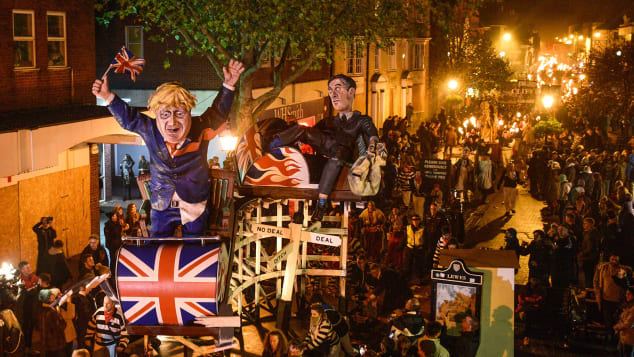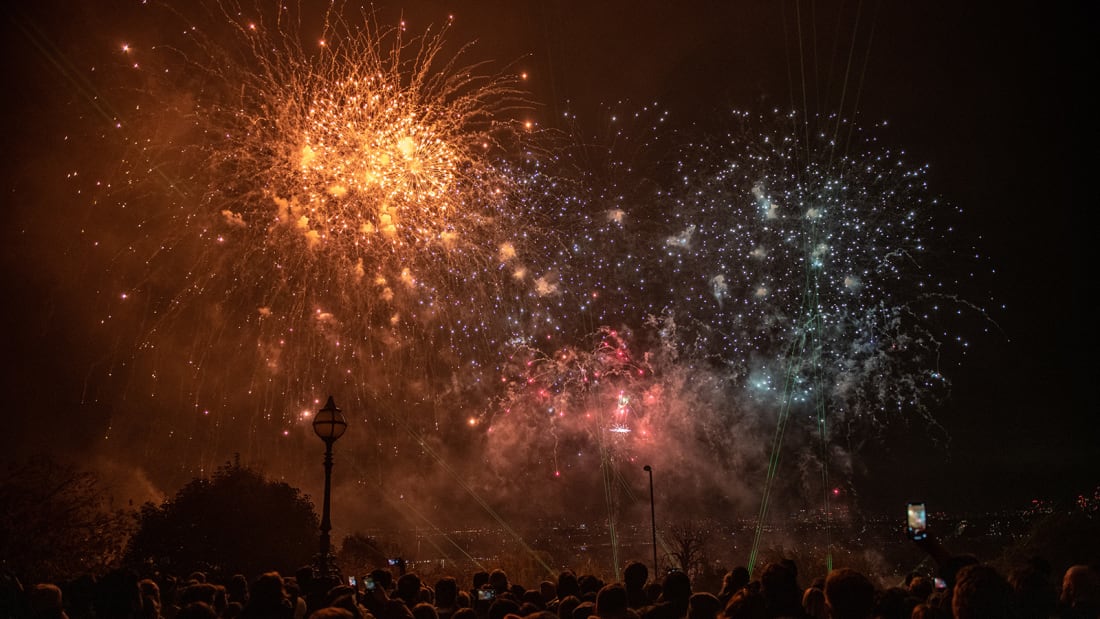Join Date: Feb 2011
Posts: 47,639
Thanks: 27,645
Thanked 14,458 Times in 10,262 Posts
|
 Re: Guy Fawkes Day-5 NOV-Tried to Destroy British Throne
Re: Guy Fawkes Day-5 NOV-Tried to Destroy British Throne
Guy Fawkes Night: What Those Fireworks and Bonfires are All About
Every year on November 5, skies across England, Scotland and Wales are illuminated by fireworks as Brits head out into the night to enjoy Guy Fawkes Night celebrations.
BBC News 5 NOV 2022.




Also called Fireworks Night or Bonfire Night, this autumn tradition has been a staple of the British calendar for the past 400 years.
Kids in English schools grew up reciting the nursery rhyme "Remember, remember / The fifth of November / Gunpowder, treason and plot." But for those outside the UK, this rather unusual holiday's rather unusual origin story may be a bit of a mystery.
Read on to find out more about the eponymous Guy Fawkes and how November 5th celebrations have evolved over four centuries.
Who was Guy Fawkes?
Guy Fawkes, sometimes known as Guido Fawkes, was one of several men arrested for attempting to blow up London's Houses of Parliament on November 5, 1605. Fawkes and company were Catholics and hoped this act of terrorism would spark a Catholic revolution in Protestant England.
England had been a Catholic country until Tudor King Henry VIII founded the Church of England. In the aftermath, Catholics were forced to practice their faith in secret.
While Fawkes became the face of Bonfire Night, it was another plotter, Robert Catesby, who masterminded the idea. But Fawkes was an explosives expert, and he was the one who got caught under the Houses of Parliament next to the stash of gunpowder, hence his notoriety.
Catesby, Fawkes and their co-conspirators were imprisoned in the Tower of London and subsequently tortured and killed publicly.
Following the thwarted plot, Londoners lit bonfires in celebration, and then-King James I passed an act of law designating November 5 a day of national remembrance.
"When the news of the plot broke, or to be accurate, the news that the plot had been foiled broke, people spontaneously lit bonfires, and I think the tradition has just kept on from there," historian James Sharpe, professor emeritus of early modern history at the University of York, tells CNN Travel.
As the century rolled on, people started burning effigies of the Pope on bonfires on November 5. In time, effigies of Fawkes replaced the Pope.
Sharpe, author of "Remember, Remember: A Cultural History of Guy Fawkes Day," suggests that the act of law, which stipulated a thanksgiving church service, was a big factor in the celebrations continuing over the ensuing centuries.
There are contemporary reports of civic feasts, explains Sharpe, and later fireworks.
From the late 19th century onward, the religious overtones of November 5 dampened, and the act of law designating it a day of remembrance was repealed.
Still, bonfires and celebrations continued. It became a common sight to see kids trawling English streets with their homemade Guy Fawkes effigy, knocking on doors and asking for a "penny for the guy," a kind of Bonfire Night-themed trick-or-treat.
What's Guy Fawkes Night like today
Britain is now a secular, multicultural society, and so it's quite surprising that a holiday once steeped in anti-Catholic sentiment has endured.
Historian Ronald Hutton, professor of history and author of "The Stations of the Sun: A History of the Ritual Year in Britain," tells CNN Travel that Guy Fawkes Night's endurance is in large part to do with its association with fire and light as well as the time of year in which it falls.
While the holiday was once "a distinctively nationalistic, Protestant festival with a specific hatred of Roman Catholicism," Hutton says Guy Fawkes Night "no longer has any religious connotations to encumber it."
Instead, Hutton suggests November 5 serves as a "rather spectacular, popular and secular festival at a time of year when people badly need cheering up."
November 5 firework displays are now more commonplace than bonfires. While some people still light their own fireworks in their backyards, many head to community-organized events in parks and public spaces. That shift, explains Hutton, occurred in the latter half of the 20th century as commercial fireworks became readily available.
That's also around the time when effigy-burning fell out of fashion -- with a few notable exceptions. "Compared with the joy of the fun of fireworks, the work of the dubious satisfaction of burning people in effigy became a lot less exciting," says Hutton.
In turn, kids also no longer beg for a "penny for the guy."
|